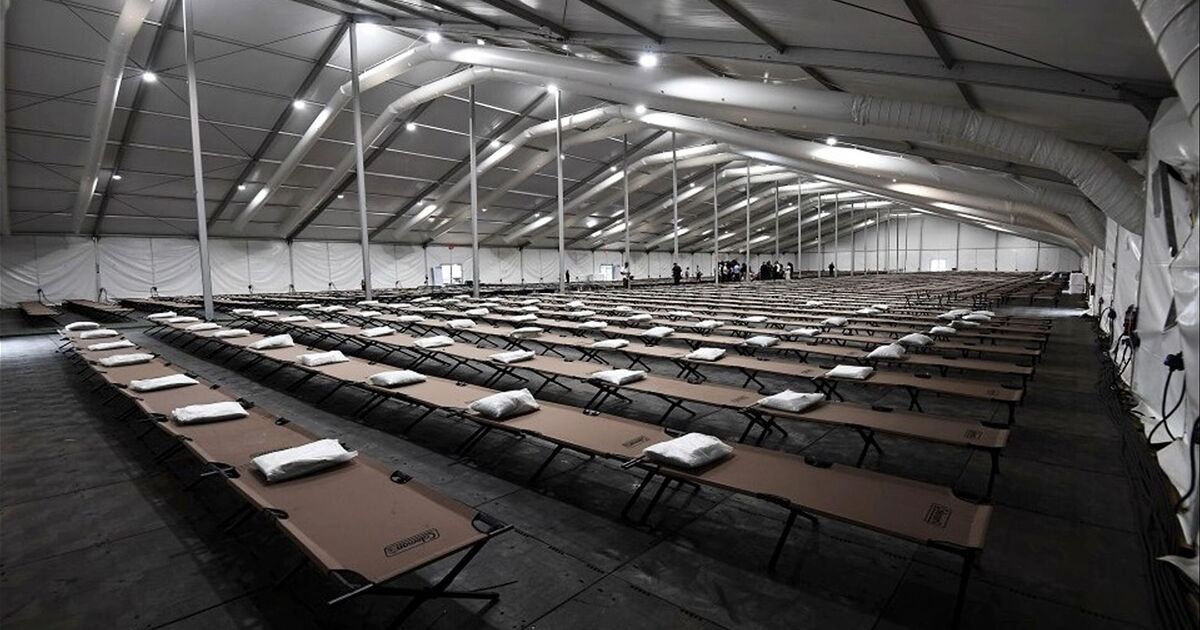

Logistics teams with experience in building barracks in war zones are working up plans to quickly open new facilities on government land, reports The Sun.
The move would help ministers speed up the process of getting asylum seekers out of costly hotels and into cheaper makeshift accommodation.
Giving Channel migrants less comfortable housing is viewed as a key deterrent in stopping record numbers of crossings. The news comes as UK prisoners to build warships under bombshell plan to get nation war-ready.
Government admits Britain has been "too generous"
A Government source said: "We are acknowledging there are people who are 'asylum shopping' across the continent, looking for the country that offers the most.
"We have been criticised in this country for being too generous — creating a pull factor.
"Today, the Government is showing that we get it, that we have been overly generous, and that we will reduce the pull factors that see thousands attempting small boat crossings."
In a bid to further ditch the "pull factors" luring migrants to Britain, Prime Minister Sir Keir Starmer is today ending the automatic rights of migrants granted asylum to bring their family.
He wants those given permission to stay to "contribute" to British taxpayers who funded their asylum accommodation.
The PM said: "There will be no golden ticket to settling in the UK — people will have to earn it."
Autumn crackdown on asylum system
A series of further migrant controls is being planned for an Asylum Policy Statement in the autumn after Sir Keir staked his political life this week on ending the Channel crisis.
The Sun understands that cross-government efforts are being ramped up to close migrant hotels after the PM pledged to accelerate the 2029 deadline to end their use.
Large plots of land are being looked at where the Ministry of Defence could quickly erect makeshift camps such as the ones troops use on deployment.
A senior Whitehall source said: "We know the need to reduce the use of hotels and it's a cross-government effort. The Army stands ready to help with logistics."
Camps seen as major deterrent to crossings
It would also be seen as a deterrent factor to those thinking of crossing to Britain illegally, and less appealing than the hotels and private housing currently used as asylum accommodation.
Tough-talking new Home Secretary Shabana Mahmood is also looking at other deterrents to dissuade Channel crossings, and ministers are looking at other countries to help out.
She has vowed to "do whatever it takes to secure our borders".
Sir Keir will today use a summit of European leaders in Denmark to tighten asylum rules to ditch an automatic right to family reunion.
Last year, more than 21,000 visas were given to families of refugees, the highest on record since figures were first collected in 2005.
It strengthens an announcement in September which made refugees wait several years before they could bring their dependents.
Refugees must work and learn English
No10 insists genuine refugees fleeing persecution will still be protected, but without the automatic perks of settlement and family reunion.
They will face a tougher road to settlement, with conditions forcing them to work, pay National Insurance, learn English and keep a spotless record before they qualify.
Officials say the shake-up will remove the pull factors luring tens of thousands to illegally cross the Channel each year.
Last night, Sir Keir said: "I believe that if you want to come to the UK, you should contribute to our society.
"That is the tolerant and fair approach to migration that our communities are built on.
"But the current system is not fit for purpose. That is why we're making fundamental changes to what those granted asylum are afforded in the UK.
"Settlement must be earned by contributing to our country, not by paying a people smuggler to cross the Channel in a boat.
"The UK will continue to play its role in welcoming genuine refugees fleeing persecution.
"But we must also address the pull factors driving dangerous and illegal small boat crossings."